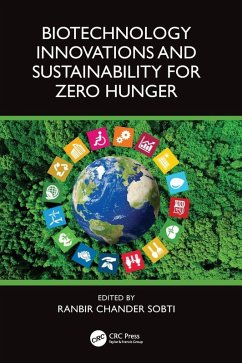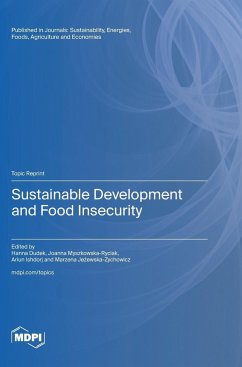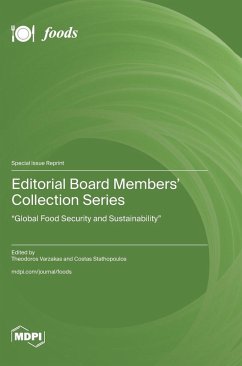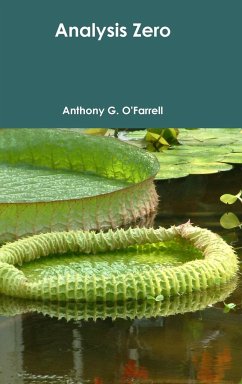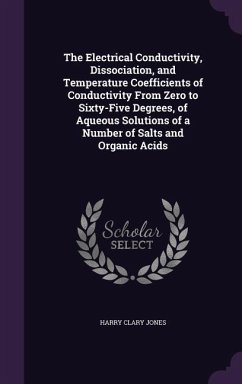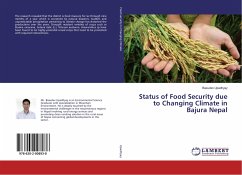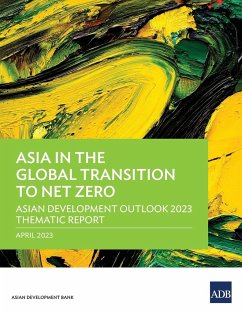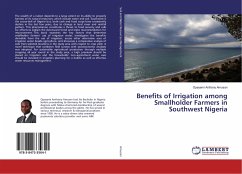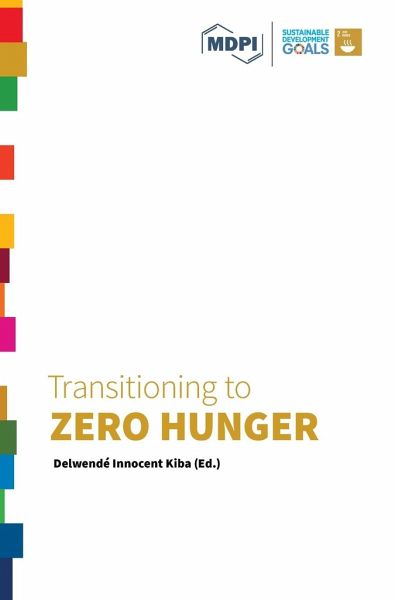
Transitioning to Zero Hunger
Versandkostenfrei!
Versandfertig in 1-2 Wochen
81,99 €
inkl. MwSt.

PAYBACK Punkte
41 °P sammeln!
In 2015, the United Nations decided to establish the goal of achieving "zero hunger" in the world by 2030 through "outcome targets" such as eliminating hunger and improving access to food, ending all forms of malnutrition, promoting sustainable and resilient agriculture, and maintaining genetic diversity in food production. As a result of this decision, strategies are under way in different countries around the world in the form of political, academic, development, and non-governmental organization projects and programs. Five years later, these strategies have certainly generated results that ...
In 2015, the United Nations decided to establish the goal of achieving "zero hunger" in the world by 2030 through "outcome targets" such as eliminating hunger and improving access to food, ending all forms of malnutrition, promoting sustainable and resilient agriculture, and maintaining genetic diversity in food production. As a result of this decision, strategies are under way in different countries around the world in the form of political, academic, development, and non-governmental organization projects and programs. Five years later, these strategies have certainly generated results that need to be documented and analyzed so as to answer the following questions: what are the progress and success stories in terms of policies, innovations, technologies, and approaches to reach the zero hunger goal? What are the constraints and mitigation strategies? Are we really in a phase of transition towards the zero hunger goal? What new directions do we need to consider to achieve this goal, particularly in the context of the current COVID-19 pandemic, which affects all sectors of development around the world? This book volume will be published within MDPI's new open access book series entitled "Transitioning to Sustainability". It welcomes contributions of empirical research, position pieces, and presentations of important research programs or stakeholder initiatives that cover any of the four "outcome targets" of the zero hunger goal. The contributions may come from academics, students, and policy makers of any region in the world and may be related to specific discipline or inter and/or transdisciplinary. Transitioning to Zero Hunger is part of MDPI's new Open Access book series Transitioning to Sustainability. With this series, MDPI pursues environmentally and socially relevant research which contributes to efforts toward a sustainable world. Transitioning to Sustainability aims to add to the conversation about regional and global sustainable development according to the 17 SDGs. Set to be published in spring 2020, and coinciding with the SDGs' 5-year anniversary, the book series is intended to reach beyond disciplinary, even academic boundaries. Furthermore, Transitioning to Sustainability will be presented and serve as a basis for discussion at the World Sustainability Week, to be held from 14-19 September 2020 in Geneva. MDPI supports the United Nations Sustainable Development Goals. For use of the SDG logos and design, please see the according Guidelines for the use of the SDG logo, color wheel, and 17 icons.



